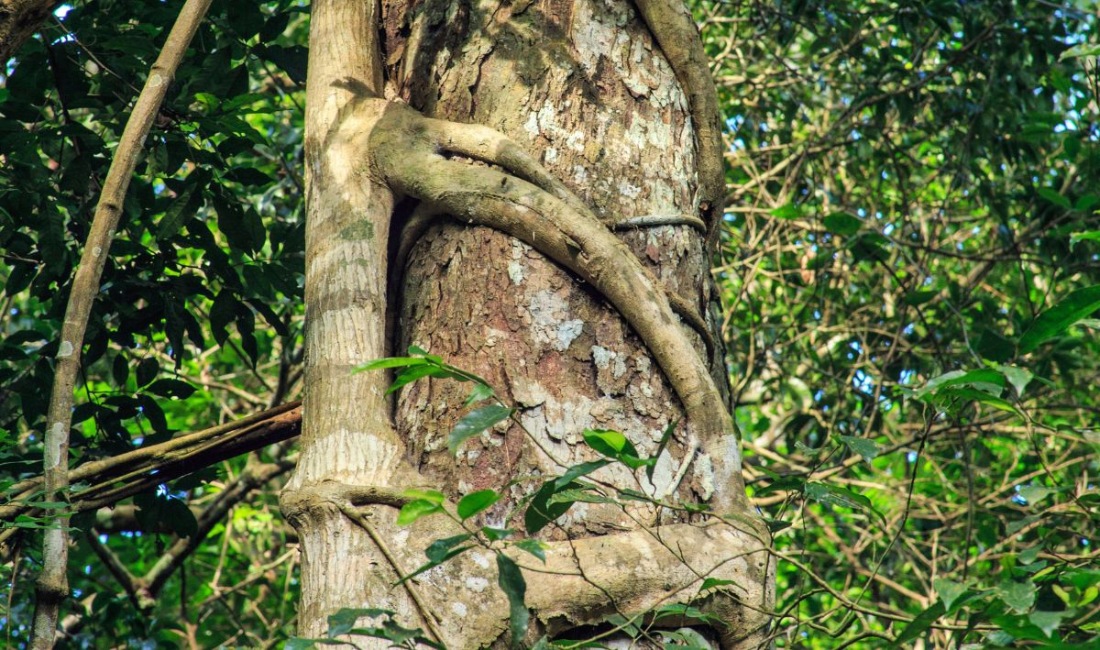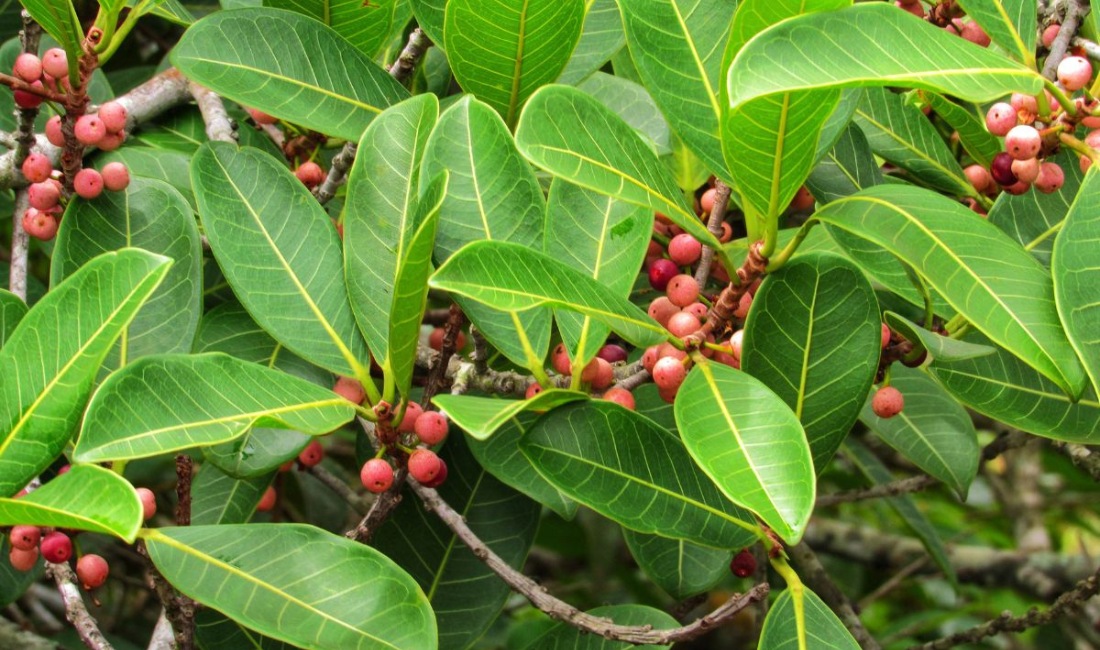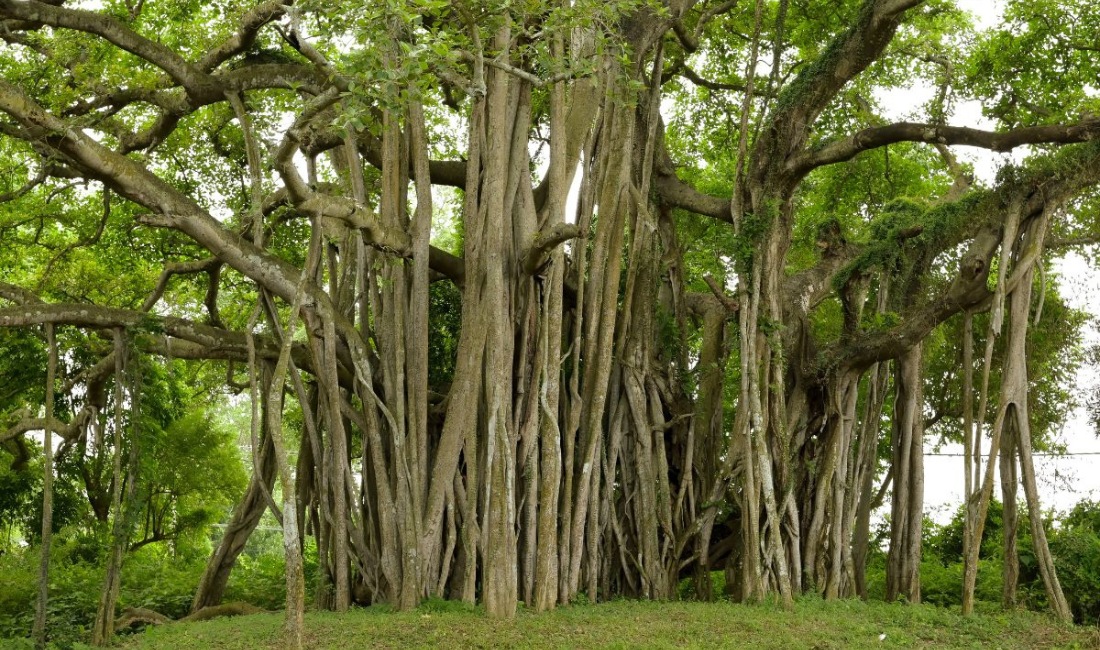You’re overseeing final preparations for an elegant garden party at a Palm Beach estate when a contractor mentions the ominous crack spreading across the terrace. Upon investigation, you discover aggressive banyan roots have been silently undermining the beautiful hardscape for months. What’s usually considered magnificent landscape asset has quietly transformed into a six-figure repair nightmare.
Situations like this illustrate why professional banyan tree care for Palm Beach estates is essential in the luxury property market. These magnificent specimens require expert understanding and specialized maintenance to remain valuable assets rather than costly liabilities on luxury properties. Proper banyan tree care protects both the estate’s investment and your peace of mind.
Key Takeaways
- Estate managers who invest in professional banyan tree care typically see immediate cost savings through prevented infrastructure damage and enhanced property aesthetics that support premium valuations.
- Understanding the distinct care requirements of South Florida’s two native banyan species helps you make informed decisions about maintenance schedules, space planning, and long-term landscape investments.
- Seasonal maintenance timing protects both tree health and estate operations by coordinating care activities with property usage patterns and entertainment schedules.
- Proper permit compliance through Certified Arborist oversight protects estate owners from penalties while ensuring tree work meets regulatory standards and maintains insurance coverage.
- Regular professional assessments identify potential problems before they become expensive emergencies, typically saving estate owners thousands in reactive repairs and property damage.
- Expert management of banyan trees’ unique growth patterns preserves their dramatic visual impact while preventing conflicts with irrigation systems, hardscapes, and other valuable landscape investments.
Native Banyan Trees in Palm Beach: What Estate Owners Need to Know
South Florida’s unique subtropical climate and geological conditions created the perfect environment for two remarkable banyan species, the Florida strangler fig and the shortleaf fig, to establish themselves as natives thousands of years ago. Unlike their Asian relatives, these trees adapted to coastal conditions, seasonal storms, and the limestone-based soils that characterize the Palm Beach region.
How Banyan Trees Grow
Banyan trees have a fascinating life cycle – beginning their lives in the canopy of other trees rather than in soil. Birds eat the small fig fruits, and the seeds pass through their digestive systems largely unchanged. When deposited on the branch of a host tree, like a cabbage palm or oak, these seeds germinate in organic matter collected in bark crevices.
The germinated seedling develops aerial roots that hang down from the host tree’s branches, slowly growing toward the ground. Once these roots make contact with soil, they establish themselves and begin growing into additional trunks while the original seedling continues developing above.
This process eventually creates the massive, multi-trunked structure that makes banyan trees so distinctive and explains why they often appear to have “swallowed” palm trees or other vegetation.
Florida Strangler Fig (Ficus aurea)
The Florida strangler fig earns its name through the process of which it establishes itself. These impressive specimens represent the larger of Palm Beach’s two native banyan species, capable of reaching 70 feet in height with equal or greater spread.
Estate advantages include:
- Unparalleled Shade Coverage: Reduces cooling costs for nearby structures while creating dramatic outdoor spaces.
- Hurricane Resistance: Flexible structure and extensive root system provide exceptional storm tolerance.
- Visual Impact: Creates signature landscape focal points that enhance property prestige.
- Wildlife Habitat: Supports local bird populations and contributes to ecosystem health.
However, this banyan tree species requires the following management and care:
- Space Planning: Requires 100+ feet diameter at maturity for optimal development.
- Root Management: Professional oversight prevents conflicts with infrastructure and irrigation systems.
- Regular Pruning: Maintains desired shape and prevents overgrowth issues.
- Seasonal Cleanup: Fruit production requires periodic maintenance for pristine grounds.

Florida strangler fig aerial roots embracing a host tree, demonstrating why these trees earned their distinctive name
Shortleaf Fig (Ficus citrifolia)
The shortleaf fig, also known as wild banyan, provides estate properties with banyan character in a more manageable size. These trees typically reach 40 to 50 feet in height, making them suitable for properties with space constraints or proximity to structures.
Some of the key characteristics and management considerations are:
- Moderate Size: Fits smaller estate areas while maintaining banyan appeal.
- Year-Round Fruiting: Attractive to wildlife but requires consistent cleanup schedules.
- Cold Sensitivity: Limited to South Florida’s warmest microclimates.
- Distinctive Features: Citrus-like leaves and attractive bark provide year-round visual interest.

Shortleaf fig (Ficus citrifolia) producing characteristic red fruit that requires regular cleanup as part of estate maintenance.
FUN FACT: The latex sap produced by shortleaf figs was historically used to make chewing gum, and these trees depend on a specific species of wasp (classified as P. asseutus) for pollination, creating one of nature’s most specialized relationships.
How Professional Banyan Care Preserves Estate Value
Estate banyan trees require specialized expertise that distinguishes them from typical residential tree care, representing investments worth hundreds of thousands of dollars that demand professional oversight for both value protection and liability management.
Why Palm Beach Estates Need Professional Banyan Tree Care
Banyan trees are more than landscape features on Palm Beach estates – they’re living investments that require specialized management. Their unique growth habits and size create challenges that go far beyond typical residential tree care.
Unique Challenges of Estate Banyan Trees
- Continuous Growth Cycles: New aerial roots emerge year-round, requiring ongoing professional attention rather than seasonal maintenance.
- Infrastructure Integration: Must coordinate with irrigation systems, landscape lighting, and hardscape features without compromising either.
- Risk Management: Size and structure create liability concerns requiring specialized insurance and legal expertise.
- Estate Coordination: Maintenance must align with entertainment schedules and property usage patterns.
How Professional Management Protects Your Investment
Estate properties benefit from comprehensive management that coordinates banyan care with broader landscape goals, blending beauty, structural integrity, and lasting value:
- Seasonal Coordination: Aligns tree care with landscape enhancement programs and estate activities.
- Aesthetic Integration: Ensures banyan trees complement architectural features and landscape design elements.
- Succession Planning: Addresses aging trees and long-term landscape evolution strategies.
- Documentation Services: Maintains records supporting property management and insurance requirements.
PROFESSIONAL INSIGHT: “Estate banyan trees are living investments that require the same level of professional attention as any other valuable asset. Proper care not only prevents expensive problems but actually enhances the tree’s contribution to property value over time.” – Jonathan Wolfson, Owner, Coastal Gardens Professionals
Seasonal Banyan Tree Maintenance Schedule for Estate Properties
Understanding seasonal care requirements helps estate managers coordinate banyan maintenance with property operations and landscape enhancement programs.
Spring (March – May)
Spring is the best time for major structural pruning and root direction since trees are actively growing and recover quickly. Preventive treatments for pests and disease, along with fertilization, set the stage for healthy growth.
Summer (June – August)
Summer brings rapid growth and hurricane risks. Regular pruning, pest management, and storm preparation keep trees safe, balanced, and attractive. Cleanup is also essential during fruiting season.
Fall (September – November)
Fall care focuses on storm readiness and maintaining stability. This is the time to remove weak branches, reinforce structure, and address root or disease issues before winter weather.
Winter (December – February)
While South Florida doesn’t experience harsh winters, cooler months provide a window for shaping, root management, and other structural work with less stress on the tree. Estate managers often use this time for long-term planning and ensuring trees remain integrated with the property’s overall design.
Palm Beach Banyan Tree Permit Requirements
Palm Beach County maintains specific regulations governing tree work on estate properties, with particular attention to significant specimens like mature banyan trees. Understanding these requirements protects estate owners from penalties while ensuring proper legal compliance.
The regulatory framework requires documentation from ISA Certified Arborists for significant work on mature trees. According to Palm Beach County’s tree ordinances, this includes major pruning, root work, or any activities that could affect tree health or structure. Estate properties often qualify for streamlined processes due to professional management oversight.
Key compliance requirements include:
- Professional Documentation: ISA Certified Arborists must provide detailed assessments and work plans.
- Detailed Work Plans: Specify scope, methodology, and timeline for all significant tree work.
- Health Assessments: Document current tree condition and anticipated outcomes.
- Post-Work Monitoring: Establish protocols for ongoing tree health evaluation.
- Property Protection: Implement measures protecting surrounding landscape and infrastructure.
Professional arborists familiar with local regulations can navigate permit processes efficiently, ensuring estate tree work proceeds without delays or compliance issues. This expertise proves particularly valuable for properties where timing coordination with other landscape activities is essential.
COMPLIANCE NOTE: Estate properties with Certified Arborists overseeing tree care often qualify for expedited permit processes, but documentation requirements remain strict for valuable specimens like mature banyan trees.

Mature banyan tree displaying the extensive aerial root system that requires professional management on estate properties.
Frequently Asked Questions About Banyan Tree Care for Palm Beach Estates
What makes banyan trees different from other large shade trees on estate properties?
Banyan trees develop aerial root systems that create multiple trunks over time, requiring specialized management techniques not needed for conventional trees. Their continuous growth cycle and unique structure demand year-round professional attention rather than seasonal maintenance.
How do I know if my estate’s banyan tree is healthy and structurally sound?
Professional assessment by ISA Certified Arborists can identify early signs of problems including:
- Pest issues
- Disease
- Structural weakness
- Growth conflicts
Annual comprehensive evaluations typically catch problems before they become expensive emergencies or safety concerns.
What are the main risks of improper banyan tree management on estate properties?
Poor management can lead to issues such as:
- Infrastructure damage from aggressive roots
- Liability concerns from falling branches
- Decreased property value from unsightly growth
- Expensive emergency repairs that could have been prevented with proper care
Are there specific insurance considerations for estate properties with large banyan trees?
Yes, mature banyan trees can affect property insurance due to their size and potential storm damage. Professional maintenance documentation often supports favorable insurance terms, while neglected trees may create liability concerns that affect coverage.
How far should banyan trees be planted from estate structures and infrastructure?
Mature banyan trees can spread 100+ feet, so new plantings should consider long-term space requirements. Existing trees near structures require professional root management to prevent damage while preserving the tree’s health and aesthetic value.
What should estate managers know about banyan tree fruit and seasonal cleanup?
Shortleaf figs produce fruit year-round, while strangler figs have seasonal cycles. Professional maintenance includes fruit cleanup scheduling to maintain pristine grounds and prevent staining of hardscape surfaces, which is essential for estate-level landscape standards.
Preserve the Beauty and Safety of Your Banyan Trees with Coastal Gardens
Don’t let magnificent banyans become the source of a dreaded “surprise repair” conversation, contact a team of professionals for banyan tree care services to prevent problems before they arise.
The highly trained and knowledgeable team of professionals at Coastal Gardens Professionals ensures the trees on your Palm Beach property receive expert management that protects property value while maintaining landscape excellence.
We understand luxury property standards and deliver the reliability estate managers require; call 561-308-7604 today to discuss banyan tree care for your Palm Beach estate that will preserve and enhance the landscape for years to come.
CALL US TODAY At 561-308-7604
Estate landscape Services
For Fine Properties in Palm Beach
With Coastal Gardens, you can rest easy knowing that your property is taken care of by a dedicated team of estate landscape professionals who truly care about creating and maintaining a dazzling outdoor space you can be proud of.
